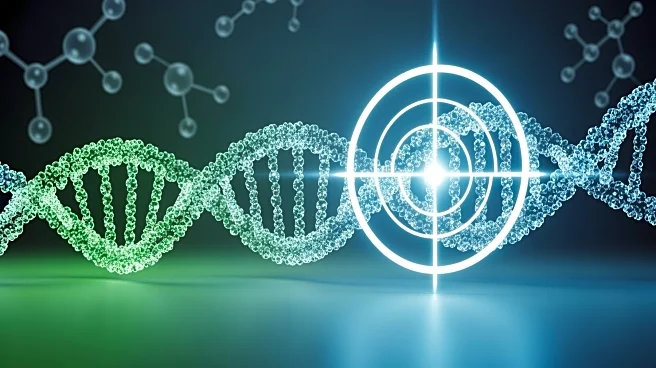What's Happening?
Dyne Therapeutics is poised to benefit from Novartis' recent $12 billion acquisition of Avidity Biosciences, a key competitor in the field of antisense oligonucleotide therapies for rare muscle diseases.
Analysts from Stifel and Jefferies have noted that this acquisition validates the RNA approach for treating such conditions, potentially boosting Dyne's market position. Dyne's therapies, including DYNE-101 for myotonic dystrophy type 1 (DM1) and DYNE-251 for Duchenne muscular dystrophy (DMD), are based on a targeting mechanism linked to a therapeutic payload. Recent data from Dyne's clinical trials have shown promising results, with significant improvements in clinical outcomes for DM1. The acquisition of Avidity by Novartis at a significant premium suggests a competitive interest in the field, which could lead to further acquisition interest in Dyne.
Why It's Important?
The acquisition of Avidity by Novartis highlights the growing interest and investment in RNA-based therapies for rare muscle diseases. This move not only validates the therapeutic approach but also underscores the potential for significant advancements in treatment options for conditions like DM1 and DMD. For Dyne Therapeutics, this development could lead to increased investor interest and potential acquisition offers, as the market for these therapies is substantial and expanding. The validation of the RNA approach could accelerate the development and approval of new treatments, benefiting patients with rare genetic disorders and potentially leading to improved health outcomes.
What's Next?
Dyne Therapeutics is expected to release additional data for its DM1 program in mid-2026, with plans to file for accelerated approval late next year. The company is also anticipating initial registrational data for its DMD program later this year, with a filing planned for early 2026. These upcoming milestones could further enhance Dyne's market position and attract additional interest from potential acquirers. The broader industry focus on oligonucleotide therapies may lead to increased collaboration and investment in this area, potentially driving further innovation and development of new treatments.
Beyond the Headlines
The acquisition of Avidity by Novartis may have broader implications for the biotechnology industry, particularly in the field of genetic therapies. As more companies invest in RNA-based treatments, there could be increased competition and collaboration, leading to faster advancements in the field. This trend may also prompt regulatory bodies to adapt and streamline approval processes for novel therapies, potentially accelerating the availability of new treatments for patients with rare diseases. Additionally, the focus on rare muscle diseases could lead to increased awareness and funding for research in this area, ultimately benefiting patients and healthcare providers.









